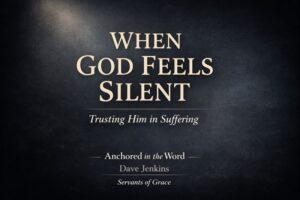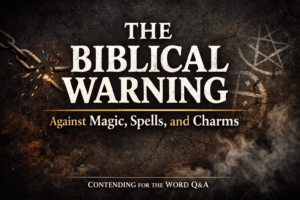⏱️ Estimated Reading Time: 7 min read
“I just don’t know what to do. This virus has made my anxiety go through the roof. I am having more panic attacks and I just can’t shake this worry” Rachel[i] said to me during our session over the phone. As a therapist, the above-referenced quote is one that I have heard every day since COVID-19 has emerged as a global pandemic. COVID- 19 has disrupted our sense of safety, creating a widespread experience of trauma leading to symptoms such as anxiety and depression. The pandemic has produced over 1 million cases and 50,000 deaths worldwide, and projections reveal that things could get worse. There are myriad questions regarding how to treat the virus, whether our loved ones or we may acquire the virus, and what this may mean for humanity. We fear that we may suffer; we fear that our loved ones might die; we fear that we are far more fragile and vulnerable than we ever imagined.
The stress of the unknown, coupled with the isolation perpetuated by the virus, has become internalized by millions of individuals throughout the world and, more specifically, throughout the United States, leading to exacerbations of anxiety, depression, and disorientation. The experience of being alone and isolated while feeling vulnerable and deprived of any sense of control is triggering for many of us, and especially those who have preexisting experiences of trauma or psychiatric illness.
The Peace of God and Job’s Friends
Rachel is a woman of faith, but when asked about seeking support from a local congregation she said “Why would I do that, they would just tell me I should not be afraid and that all I need to do is pray about it?” Rachel’s story is a common one. Working as a Christian Therapist, I have heard many stories of those who have experienced trauma reach out to a pastor desiring the healing balm of the gospel to be applied to their gaping wound only to have a bag of salt dumped in.
Church leaders have attempted to promote peace by reminding congregants that God is in control, so they should not fear. The theological tenant of God’s providence and promise to care for us is often contextualized by Scripture references of Philippians 4 and Matthew 6. There are powerful truths about our position in Christ as God’s children within these Scriptures. Being mindful of our position has the potential to bring about peace regardless of our circumstances, but these Scriptures are often applied and utilized in a harmful manner. The underlying logic structure by Paul in Philippians 4 and Matthew 6 follows: if you are anxious, you should remind yourself that God is in control and that he cares for you; reminding yourself of this reality should lead to your anxiety lifting and you having peace. There is an implicit flipside to this theological concept, which is if you do not experience that peace, then it is likely a result of a lack of faith. There is an example of this within the story of Job when Job’s friends attempt to remind Job of the theological disposition he should have and the peace that should follow his proper way of thinking. It is easy for us to point this out when reading the story of Job, but many of us fall subject to this same way of interacting with those experiencing psychological distress.
The Danger of Isolation
Those who have internalized brokenness and continue to experience anxiety, fear, and depression due to isolation and health concerns have feelings of shame and guilt when told they should not fear. The shame leads to existential questioning and doubt within the individual. The individual now experiences distance from God and their brother or sister in Christ. The disorientation and self-blame perpetuates, and the individual is left feeling hopeless and isolated. Further, individuals who have experienced this kind of treatment within the Church often become disconnected from their congregations, which exacerbates isolation. The symptoms they experience that could be conceptualized as signposts pointing to the brokenness of the world; instead are conceptualized as sin leading to ineffective care and increased shame and guilt.
The Hope of the Gospel
We need to be reminded that the gospel is about who our faith is in Christ and not the magnitude of our faith. God’s power is said to be made in our weaknesses, and we, therefore, boast in these. We need to have a theology that gives room for faith and peace that is present while we are experiencing emotional distress. Having this conceptualization may allow us better to understand Scriptures such as Philippians 4 and Matthew 6. The phrase do not be afraid or fear not are used hundreds of times throughout Scripture. These references to “fear not” are often communicated as a command, but we need to ask ourselves why God communicates this so frequently throughout Scripture. Perhaps God understands that fear and anxiety is a normal facet of the human experience this side of the Fall. God is a heavenly Father who stoops down next to His child, places His arm around His child, and reassures them, “You don’t have to fear, I am with you.” There is no judgment if the child continues to tremble or shake for such trembling does not lead to the Father to distance Himself from His child. Instead, the Father draws closer, for this is what good fathers do.
The Example of Jesus in Grieving with Hope
Jesus provides an example of how to grieve with hope. He also provides an example of how to come alongside those who fear. The brokenness of the world draws out emotions such as grief, fear, and anxiety. We also see physiological manifestations of the brokenness of the world in those who experience these symptoms and even within Jesus Himself. In anticipation of the cross, we read that Jesus was in deep anguish to the point of sweating drops of blood (Luke 22:44).
Jesus is our perfect sacrifice. He is perfectly holy and experienced the full range of human emotions yet without sin, which makes Him our High Priest, who can empathize with our every suffering. In the Garden of Gethsemane, Jesus prays to the Father as He experiences anguish and anxiety so profound that he physically sweats blood. The experience of Jesus in Gethsamene provides Christians with an example of how we are to approach the range of human emotions that we currently experience as a result of COVID-19 as we acknowledge these emotions and allow them to reveal the brokenness present in the world. In doing so, we bring these emotions to our Heavenly Father through trembling hands, sweaty palms, and a racing heart. The peace we experience does not mean that the anxiety subsides; it means that we have an assurance that God is our Shepherd and He always walks with us.
Guidance to Face Fear and Anxiety with Hope in Jesus
Jesus provides the people of God with guidance in Mathew 14 through the story of Peter. The disciples are struck with anxiety, fear, and a lack of self-control as a result of the storm surrounding them. Jesus calls Peter to move toward Himself. Taking steps into the water and in the storm did not make sense, but moving toward Jesus certainly did. Peter is able to keep his footing and continue forward as long as His focus remained on Jesus. Through this account Jesus reminds us that our peace is found through fixing our eyes on Christ.
Such biblical truth found in Matthew 14 is what Christians need today. We need not look to our faith or ability but instead to the person and work of Christ. We can be reminded that being with God is the safest place to be, but the road that leads us closer to Him often involves pain, suffering, anxiety, depression, and disillusionment. These things draw us to the end of ourselves and into the arms of our Savior, and within His arms, we experience a peace that passes understanding by the grace of God through the indwelling presence of the Holy Spirit.
[i] I’ve changed the names of clients to protect their identity and privacy.




